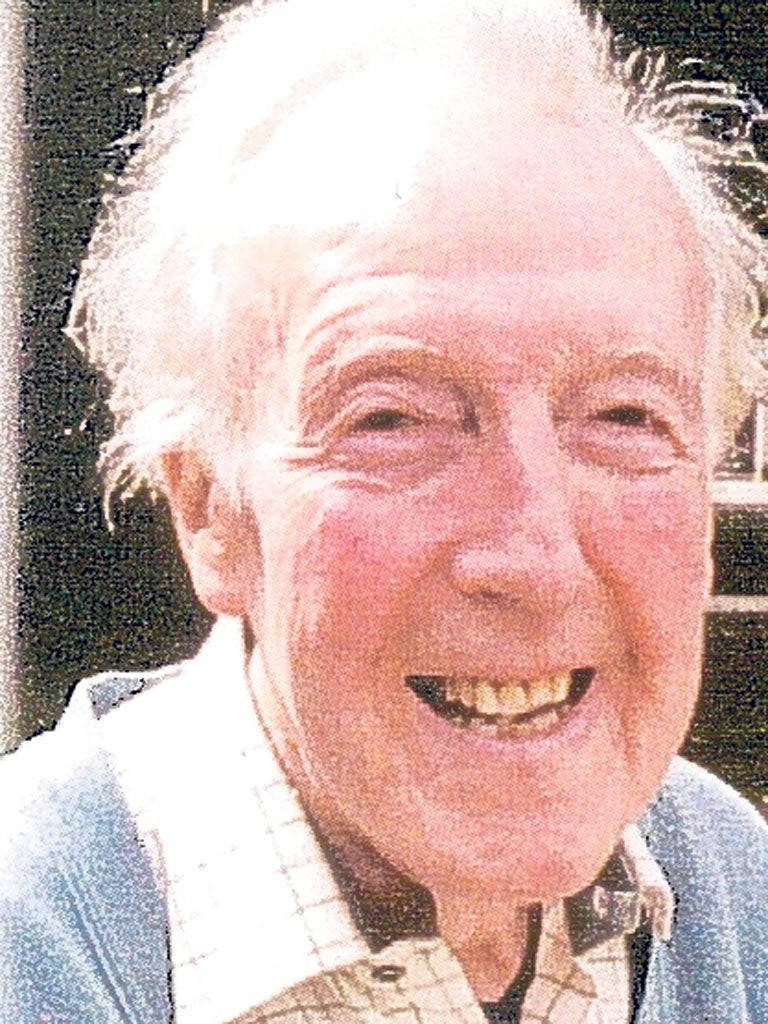Ray Boyfield: Trade unionist who played a major role in the postwar TUC

Your support helps us to tell the story
From reproductive rights to climate change to Big Tech, The Independent is on the ground when the story is developing. Whether it's investigating the financials of Elon Musk's pro-Trump PAC or producing our latest documentary, 'The A Word', which shines a light on the American women fighting for reproductive rights, we know how important it is to parse out the facts from the messaging.
At such a critical moment in US history, we need reporters on the ground. Your donation allows us to keep sending journalists to speak to both sides of the story.
The Independent is trusted by Americans across the entire political spectrum. And unlike many other quality news outlets, we choose not to lock Americans out of our reporting and analysis with paywalls. We believe quality journalism should be available to everyone, paid for by those who can afford it.
Your support makes all the difference.Ray Boyfield was one of the Trades Union Congress officials who played a major part in helping the organisation after the war become one of the most effective forces in the restructuring of industry and social welfare. Mentioned as a possible successor to George Woodcock as general secretary, he left the trade union movement to join private industry as a labour-relations adviser and then to join the National Industrial Relations Court which was boycotted by the TUC.
Born in Stamford, Lincolnshire in 1916, both his parents were strong trade unionists. His father, a joiner, was a member of the Amalgamated Society of Woodworkers and was a Trades Council chairman; his mother was a Labour member of borough and county councils. She was to have a profound affect upon him, influencing him to take an active role in public service.
He went to Stamford School and in 1935 won an open scholarship to Lincoln College, Oxford to read modern history, which he followed with a diploma in education. A contemporary of Denis Healey, he joined the Oxford University Labour Party; later, in 1942, he became secretary for his local party in Cirencester. He also began a long relationship with the Trades Councils, first as a local official with Wrekin Trades Council and later as servicing official when he joined the TUC.
On the outbreak of war, he joined the RAF and trained as a pilot, only to be dismissed when he failed an eye test at the end of training; he was sent to the West Country to work on an airfield.
In 1946 he joined the TUC, along with another bright spark, Lionel Murray, as an assistant in the organisation department, rising to become its head in 1949. A born diplomat with a great deal of charm and a sense of humour, he helped unions to amalgamate and work together, as well as organising the Trades Councils. It was a time of great change for the TUC as industries were nationalised and smaller unions combined to negotiate as their working practices changed.
He worked closely with Sir Tom O'Brien, general secretary of the theatre union NATKE, to get the Trade Union Amalgamation Act of 1964 introduced. This Act set out how future amalgamations should take place with guidelines on balloting members; this would become the template for all future amalgamations. Both men were to receive much praise, and he remained very proud of his part in getting the Act passed.
Despite his close association with TUC general secretary George Woodcock, who hoped to see Boyfield take over the position from him, he left the TUC in February 1966 to take up a position as industrial relations adviser with the International Publishing Corporation. That summer, both he and Murray, later to become TUC general secretary, were awarded OBEs. There were several theories as to why he left, which ranged from problems with the wages council for whom he acted as secretary, to that of a general feeling of being disillusioned with the relationship between the TUC and the Labour Government. Many of the general secretaries found it difficult to decide whether to remain outside the Government or to take up a position within it. There was concern that unions were becoming too powerful and were demanding too much from government. He remained taciturn about his reasons.
In 1972 he joined the National Industrial Relations Court, introduced by Ted Heath's Conservative Government as part of the 1971 Industrial Relations Act, which was boycotted by the TUC. He remained a member for the next two years, later becoming a prominent member of the Institute of Personnel Management.
From 1975 to 1981, he wrote and published articles on employment law for Incomes Data Service, editing a magazine on their behalf.
He is survived by his wife, Hilary, and by his daughter, Diane.
Ray Boyfield OBE, trade unionist, personnel director: born Stamford, Lincolnshire 31 March 1916; married 1945 Margaret (died 1991, one daughter), 2004 Hilary Smith; died London 15 September 2011.
Join our commenting forum
Join thought-provoking conversations, follow other Independent readers and see their replies
Comments